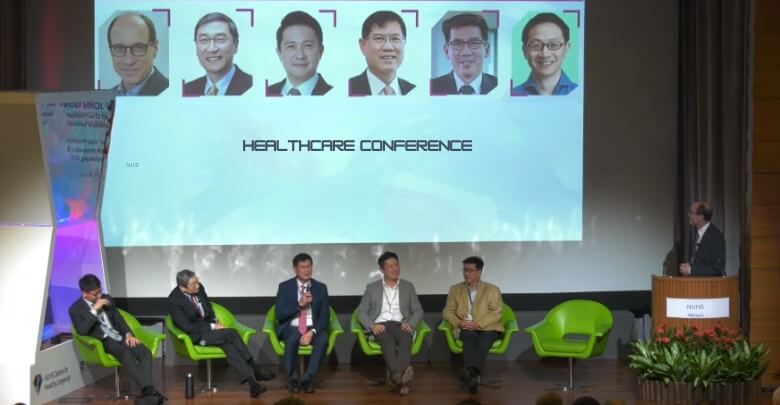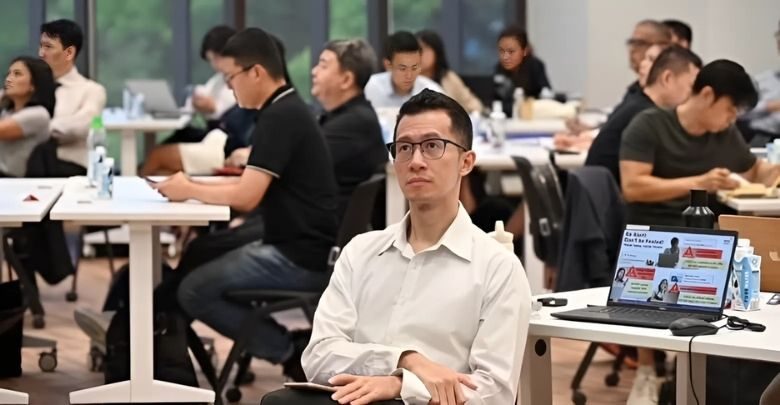Professionals from various fields come together to discuss innovations and advancements at healthcare conferences today. These events encourage collaboration and knowledge sharing among attendees who are eager to stay informed in a rapidly growing industry. This might make you ask, “Who should attend a healthcare conference?”
A healthcare conference is beneficial for a wide range of participants, including healthcare professionals, researchers, policymakers, students, and industry stakeholders. Each of these groups can gain valuable insights and networking opportunities that enhance their work and understanding of the field. Attending such events can lead to collaboration and growth in their respective careers.
Are you curious about who else might benefit from these conferences? This article will provide you with detailed information about the different attendees and their significance. Join us as we explore the many facets of healthcare conferences and their impact on the industry.
Getting to Know the Importance of Healthcare Conferences
A healthcare conference brings together professionals from various disciplines in the medical field. These events offer opportunities to share knowledge, showcase the latest research, and discuss innovative practices that can improve patient care. Attending these conferences allows participants to stay updated on industry trends and advancements.
Networking is another significant benefit of healthcare conferences. Attendees can connect with peers, industry leaders, and potential collaborators. These interactions can lead to valuable partnerships, research opportunities, and friendships that can improve one’s career. Building a professional network is crucial for personal and professional growth.
Moreover, healthcare conferences feature expert speakers and panel discussions that provide deep insight into specific topics. Participants can gain knowledge that is not easily accessible elsewhere. This exchange of ideas enables a collaborative environment where attendees can learn from each other’s experiences and perspectives.
For those considering participation, it’s worth looking to attend a health care conference in Canada with invitation letter. Such events can provide amazing opportunities to explore the Canadian healthcare system and connect with international professionals. Attending a healthcare conference is an invaluable investment in one’s professional development.
Who Should Attend a Healthcare Conference?
Attending a healthcare conference offers a wealth of knowledge and networking opportunities for various professionals in the field. These events serve as platforms for sharing innovative ideas and discussing the latest advancements in healthcare practices.
Healthcare Professionals
Doctors, nurses, and therapists should attend healthcare conferences. These events provide essential updates on the latest research, treatment methods, and technologies that can enhance patient care. Continuous education is necessary in this constantly changing field, and conferences play a key role in that.
Researchers and Academics
There is a great deal of benefit for researchers and academics from healthcare conferences. They have the chance to present their findings and engage with peers who share their interests. This interaction can lead to collaborations, enriching their research efforts and expanding their knowledge base.
Healthcare Administrators
It is also important for healthcare administrators to attend these conferences. These events focus on the management side of healthcare, offering insights into policies, regulations, and operational efficiencies. Gaining this knowledge helps administrators make informed decisions that benefit their organizations.
Policy Makers
Developing healthcare systems requires the involvement of policymakers. By attending healthcare conferences, they can stay informed about current issues and innovative solutions in the field. This knowledge is essential for developing policies that positively impact healthcare delivery and access.
Students and New Graduates
The importance of attending conferences should not be overlooked by students and new graduates entering the healthcare field.
These events provide a unique opportunity to learn from experienced professionals and gain insights into various career paths.
Networking at these conferences can also lead to internships and job opportunities.
Industry Stakeholders
Various industry stakeholders, such as pharmaceutical representatives and technology providers, should attend healthcare conferences. These events allow them to showcase their products and services while networking with potential clients and collaborators. Engaging with healthcare professionals can lead to valuable partnerships.
Taking part in healthcare conferences offers a variety of benefits for a wide variety of audience members. From professionals to the public, everyone can gain valuable insights. By actively encouraging public attendance at health care conferences, communities can improve their knowledge and engagement in health-related matters.
How Should You Prepare for the Healthcare Conference?
Getting the most out of healthcare conferences requires preparation. Planning can lead to meaningful connections and learning opportunities. Effective preparation helps attendees feel more confident and ready to interact with peers and experts. Make sure you’re well prepared for the event by following these steps.
Step 1. Research the Conference Agenda
Start by reviewing the conference agenda thoroughly. Understand the topics being discussed, the speakers presenting, and the sessions available. Identify which sessions align with your interests and professional goals. This will help you plan your schedule effectively and make the most of your time.
Step 2. Set Clear Goals
Before attending the conference, set clear goals for what you want to achieve. Determine whether you aim to learn about new trends, network with specific individuals, or gather resources for your practice. Having defined objectives will keep you focused and ensure a more productive experience.
Step 3. Prepare Your Materials
Gather any materials you will need for the conference. This includes business cards, leaflets, and relevant documents. Prepare your digital devices, ensuring you have chargers and notetaking apps ready. Being organized will help you feel more confident and make a positive impression on others.
Step 4. Plan Your Networking Strategy
A conference is not complete without networking. Research attendees, speakers, and exhibitors you would like to connect with. Plan how you will approach these individuals and what topics you might discuss. This proactive approach can lead to valuable professional relationships and opportunities.
Step 5. Practice Self-Care
Lastly, don’t forget to prioritize self-care before and during the conference. Ensure you get enough rest, eat healthily, and stay hydrated. Managing your well-being will keep your energy levels high, allowing you to fully engage with the conference activities and make the most of your experience.
By following these steps, you’ll be more likely to succeed at the healthcare conference. By preparing in advance, you will be able to enjoy the event more and focus your energy and effort on learning and networking.
What Should You Bring to a Healthcare Conference?
A successful healthcare conference requires thoughtful preparation to ensure you have everything you need. Packing the right items can enhance your ability to network, learn, and make the most of the event. Here are essential items to bring with you.
Business Cards
Networking at healthcare conferences requires business cards. They allow you to share your contact information easily with new connections. Make sure your cards are up-to-date and reflect your current position and organization. Carrying enough supply ensures you are ready to connect with others.
Notebooks and Writing Tools
Bring a notebook or digital device for taking notes during sessions. Writing down key insights and ideas will help you remember important information. Consider using different colored pens or highlighters to organize your notes effectively and make them easier to review later.
Device Chargers
Ensure you bring chargers for your electronic devices, such as phones and laptops. Many conferences have limited charging stations, so being prepared can save you from running out of battery. Having a portable charger can also be a lifesaver during long days at the event.
Proper Outfits
Choosing the right clothing is crucial for making a good impression at healthcare conferences. Wearing appropriate attire for health care conferences ensures you present yourself professionally and comfortably. Consider the event’s atmosphere and dress accordingly, balancing professionalism with personal style.
Snacks and Water
Packing snacks and a reusable water bottle can help keep your energy up throughout the conference. Healthy snacks, like nuts or granola bars, are convenient options. Staying hydrated is essential, especially if you have a busy schedule of sessions and networking opportunities.
The right items can help you make meaningful connections at healthcare conferences and improve your experience. By being prepared, you can focus on learning and engaging with others throughout the event.
Tips for Maximizing Your Experience at Healthcare Conferences
A healthcare conference offers valuable building connection opportunities as well as a chance to learn. To make the most of these events, you should be proactive and engaged. Here are some tips for enhancing your experience.
- Plan Your Schedule: Review the agenda ahead of time and choose the sessions that interest you most. Having a clear plan helps you maximize your time and ensures you don’t miss important discussions.
- Network Actively: Take the initiative to introduce yourself to other attendees. Engaging in conversations can lead to valuable connections and potential collaborations that may benefit your career.
- Take Notes: Keep a notebook or digital device handy to jot down important points during sessions. These notes will help you remember key takeaways and can serve as a resource for future reference.
- Participate in Q&A Sessions: Don’t hesitate to ask questions during discussions. Engaging with speakers and panelists shows your interest and can provide deeper insights into the topics presented.
- Follow Up After the Conference: Reach out to the contacts you made during the event. A simple email thanking them for their time can strengthen the relationship and open doors for future interactions.
- Share Your Insights: After the conference, consider sharing what you learned with colleagues or on social media. This not only reinforces your learning but also positions you as a knowledgeable resource in your field.
- Stay Open-Minded: Approach the conference with an open mind. Be open to explore new ideas and perspectives that may challenge your current understanding of the healthcare landscape.
You will be able to maximize your conference experience by following these tips. Engaging actively and being prepared can lead to meaningful connections and valuable learning opportunities.
Frequently Asked Questions (FAQs)
Healthcare conferences are valuable events that attract a diverse range of participants. Maximizing the benefits of these gatherings can be achieved by understanding who should attend. Here are some common questions related to this topic, along with informative answers.
Who Are the Ideal Attendees for Continuing Education?
Attendees focused on continuing education should definitely consider healthcare conferences. Professionals looking to update their knowledge or skills in specific areas can find relevant sessions that address their learning needs. Engaging with expert speakers provides insights that are critical for career advancement and improved patient care.
Are Policy Makers Important Participants at Conferences?
Yes, policymakers play an essential role in healthcare conferences. Their participation allows them to gather first-hand information about the latest challenges and innovations in the field. Engaging with professionals can help inform policies that improve healthcare systems and patient outcomes on a larger scale.
How Can Public Health Officials Benefit from Attendance?
Public health officials can gain valuable insights at healthcare conferences. They can learn about emerging health trends, best practices in community health, and effective strategies for health promotion. These events provide networking opportunities that can enhance collaboration with other public health professionals and stakeholders.
Should Nonprofit Organizations Attend These Events?
Attending healthcare conferences is important for nonprofit organizations involved in advocating for or supporting healthcare. These gatherings offer them a platform to network, share their mission, and connect with like-minded professionals. Learning from others in the field can improve their efforts and improve the services they provide to communities.
How Do Healthcare Technology Experts Fit In?
A conference focused on innovation needs healthcare technology experts to attend. They can showcase the latest technological advancements and discuss their applications in patient care. Networking with healthcare professionals allows them to understand real-world needs, leading to the development of solutions that improve efficiency and outcomes.
Bottom Line
Whether you work in the healthcare profession, are a researcher, a student, or an administrator, a healthcare conference provides valuable learning opportunities. Each group brings amazing insights and can benefit from the networking and learning experiences offered. So, who should attend a healthcare conference? The answer includes anyone looking to advance their knowledge and build connections in the healthcare field.
Make sure you set clear goals and research the agenda when preparing for your next conference. Engaging with others and actively participating in sessions will make your experience more rewarding and insightful. Best of luck, and happy travels through the healthcare conference world!








